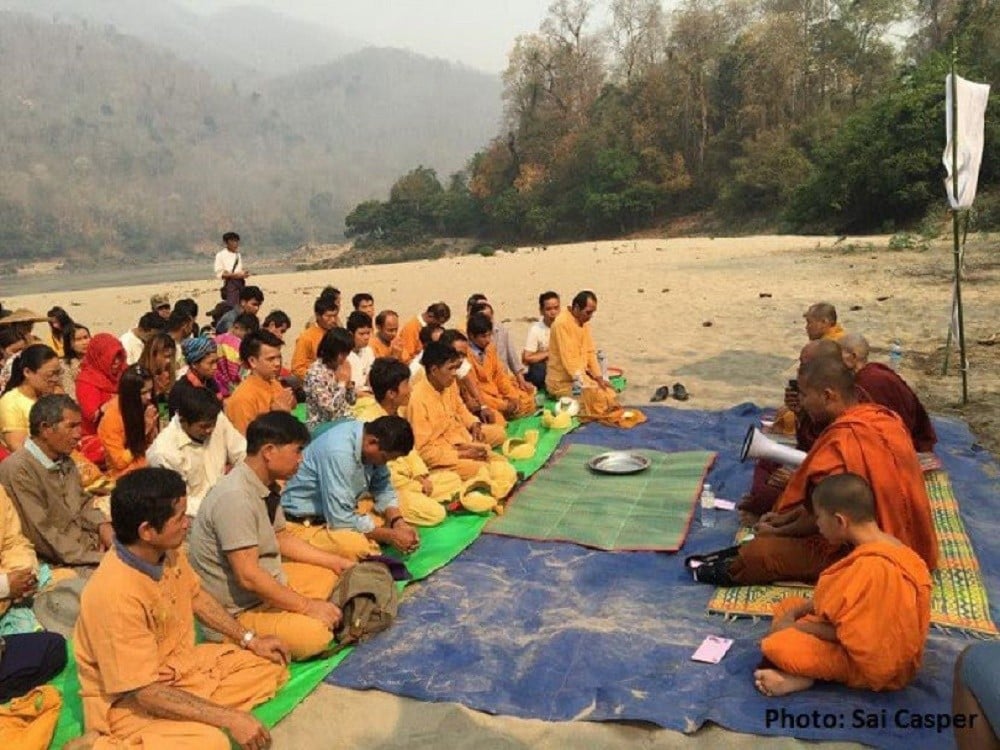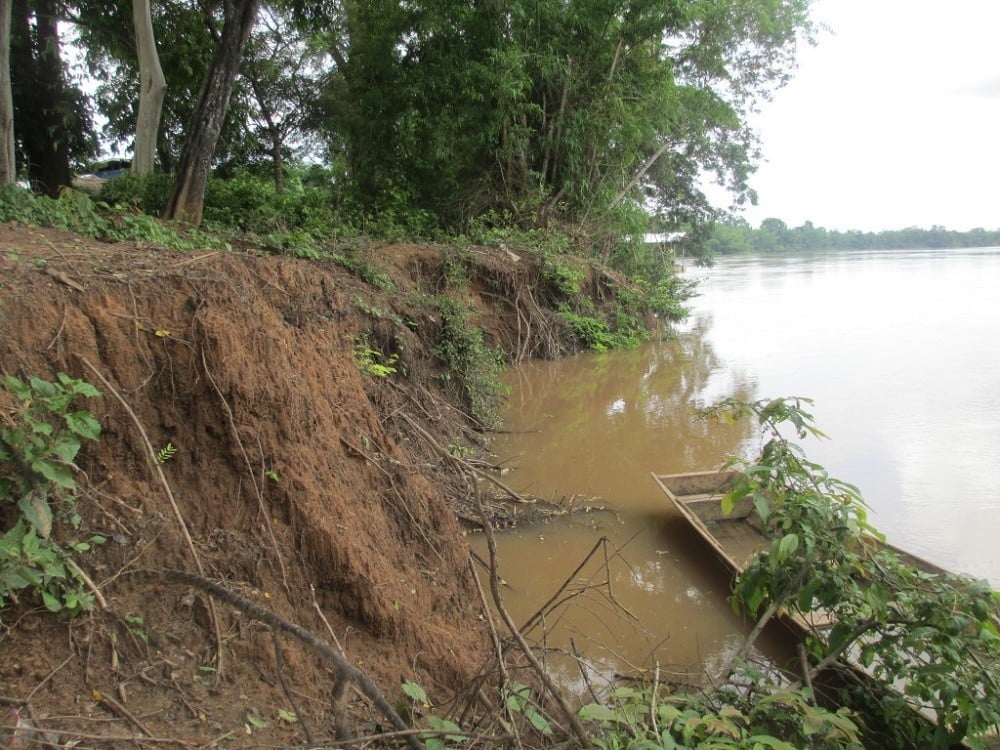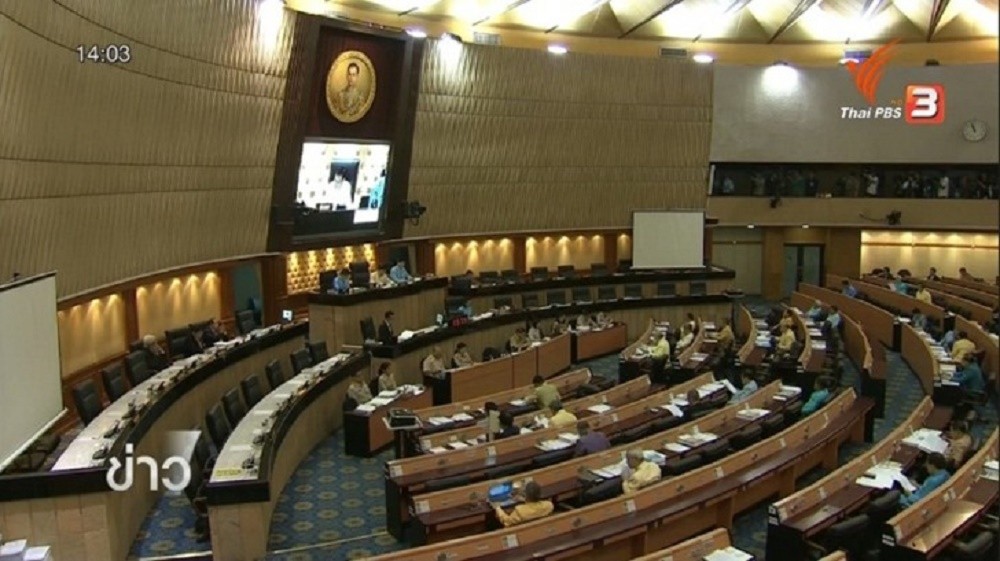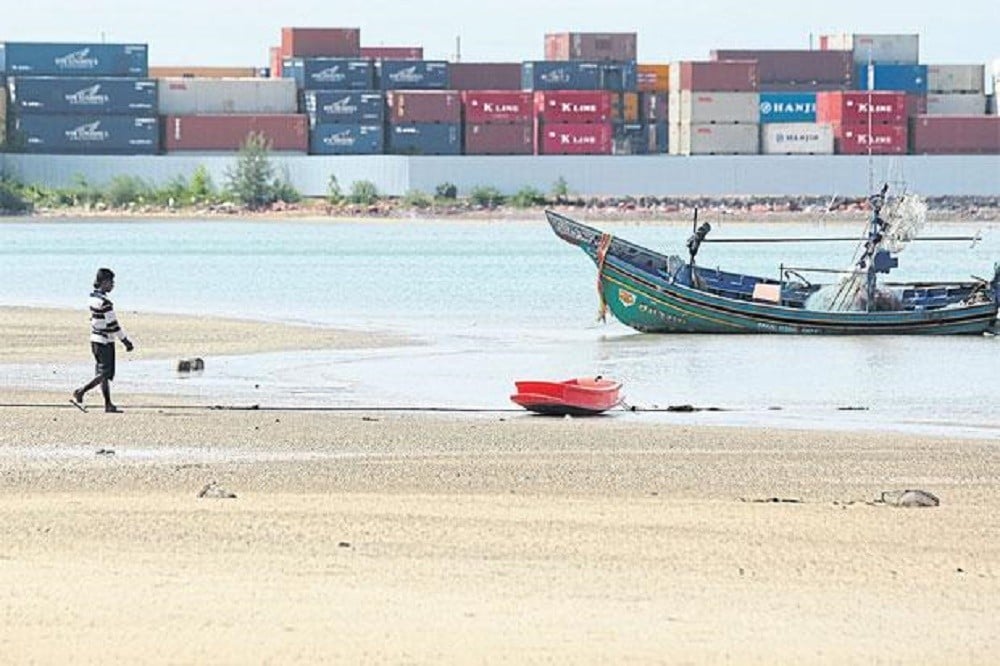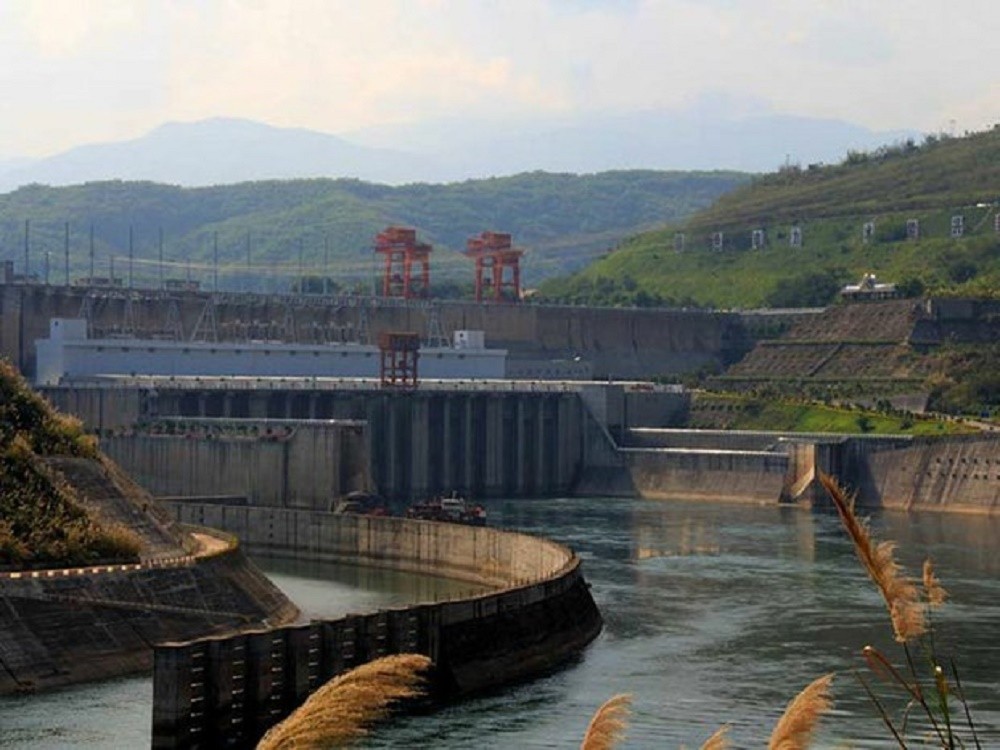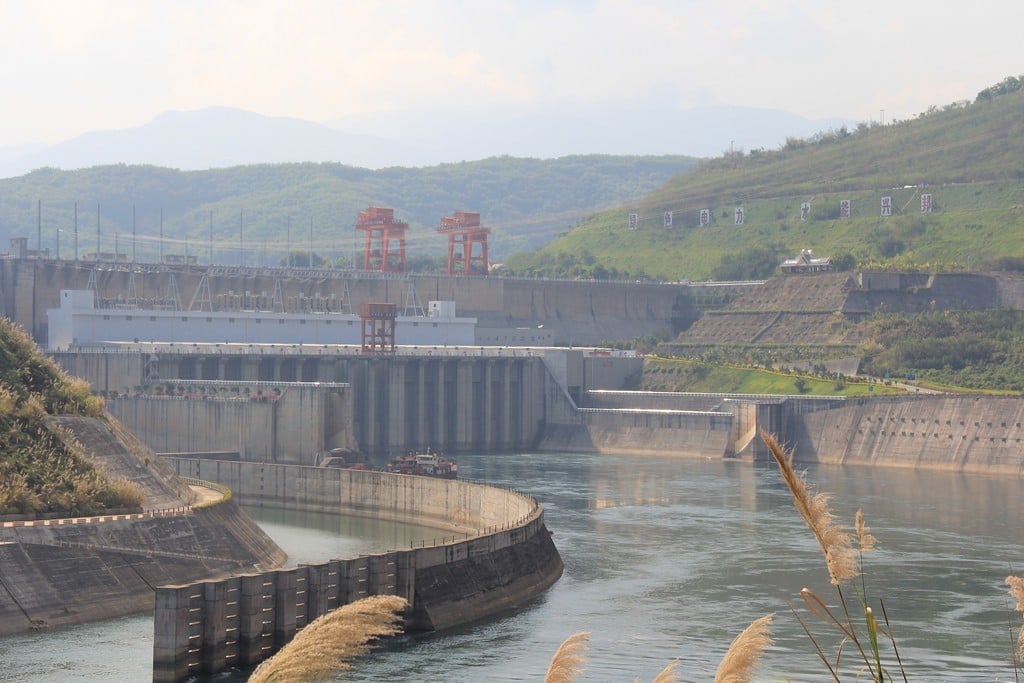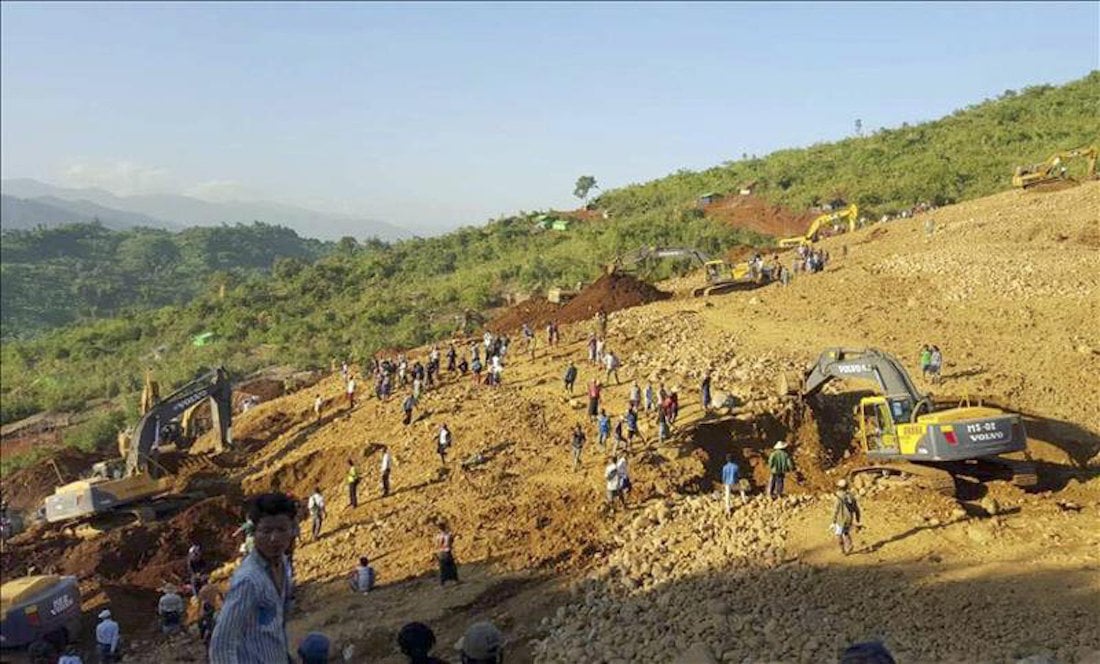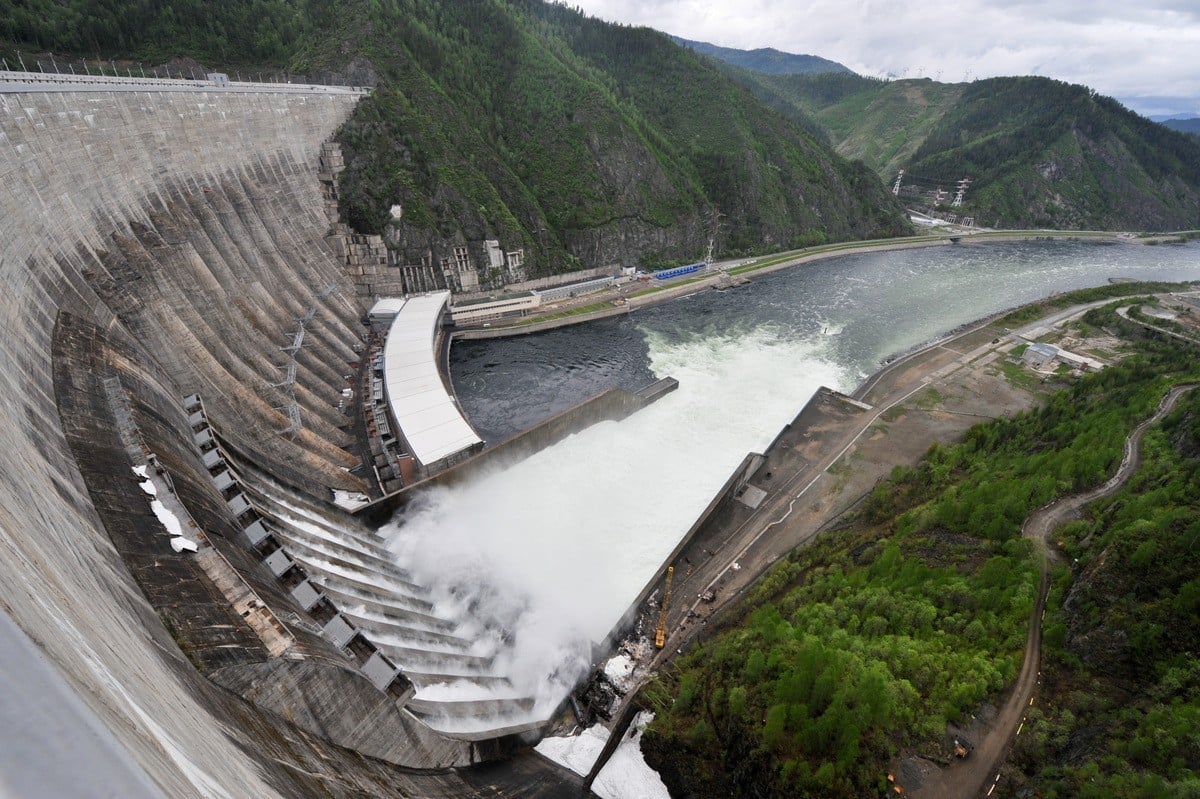Members of the Save the Salween Network gathered at Wan Sala village in Shan state to mark International Rivers Day and voice their opposition to a series of six dams set to be built on the SalweenRiver, also known as the Thanlwin River. Of particular concern to the group of environmentalists and concerned citizens is the Mong Ton dam project, which if constructed in Shan State is expected to be South East Asia’s largest dam.
Category: Region
Selected environmental stories from media outlets in the Mekong region and beyond.
Struggling with riverbank erosion by Nam Theun 2 dam
Since 2010 the river banks in Phuk Pheua village in Savannakhet province have started to rapidly erode, causing hardship for the village people. The extent of the erosion has increased every year, and each year the rate of erosion seems to be getting worse. This rapid erosion has been caused by the Nam Theun 2 dam, which discharges water into the river upstream of the river.
NLA passes new mining bill
The National Legislative Assembly on March 17 passed the new mining bill by 148 votes against one opposition.
The bill, in essence, empowers the state to manage mining operations for utmost benefits to the country and its people by taking into consideration economic and social development and environmental and health impacts.
Deforestation threatens Vietnam’s rare monkey
After trekking the leech-ridden jungle from dawn to dusk for days on end, exhaustion was starting to show on the conservation team’s sweaty faces and damp gear.
Midway into a 10-day field assignment in Vietnam, the team had no more than two good photographs of the critically endangered grey-shanked douc to show on their long-range cameras. They needed a lot more.
Such is the elusiveness of the rare monkey – even the experts have a hard time trailing it.
The grey-shanked douc can only be found in the remote forests of Vietnam’s Central Highlands. Until the recent discovery of a new population of 500 doucs by a survey team from Fauna & Flora International, the species was believed to have as few as 800 remaining in the wild.
Visible snare lines and the absence of gibbons and larger mammals in the jungle point to heavy hunting in the past, said Mr Jonathan Eames, who leading a photography and book project on the primate.
Laying down the ‘dictator law’ for money
The prime minister, who seized power in May 2014, wants all Thais to have a better life and increased income, despite looming economic problems.
But to achieve his goal, there’s one condition. Gen Prayut has to use Section 44 of the interim charter, the so-called dictator law, which allows him to bypass checks and balances to fast-track development projects.
The hope is that as a result of the orders, 12 new SEZs and dozens of mega projects will pump trillions of baht into the economy by the end of the year.
NGOs question China’s dam release
One week ago, China doubled the quantity of water released from the Jinghong Dam along the Mekong River in Yunnan province. This came two days following Vietnamese officials meeting in Beijing to request the increase due to severe drought conditions and low flows in the Mekong Delta. But at a press conference in Bangkok yesterday, representatives of Thai civil society and communities denounced the action as destructive and insincere.
“No one doubts that people in the Vietnamese Delta may be suffering from salt water intrusion due to low Mekong flows this dry season,” said Montree Chantawong from Towards Ecological Recovery and Regional Alliance (TERRA), “But these additional dam releases can’t really help them, yet are hurting many of us.”
China leaves little doubt who is master of the Mekong
Supalak Ganjanakundee China is demonstrating that it has real power to control and manage the Mekong River, as Beijing launches a diplomatic campaign to engage with affected countries downstream. This situation has become clear after China’s contacts with the other five countries along the river – Myanmar, Laos, Thailand, Cambodia and Vietnam. Physically, about half […]
Civil society groups demand halt to Hpakant jade mining
Civil society organisations meeting in the Kachin State mining town of Hpakant have called for a suspension of all jade mining projects, saying the industry is costing lives, ruining the environment and fuelling conflict.
“Until rules, laws and regulations are legislated and enacted, jade businesses and projects should be halted. Proper policy guidelines, laws, mechanisms, and rules and regulations for the extractive industry should be legislated as fast as possible,” the groups said in a statement directed at the incoming NLD government.
Their call for a suspension of mining activities in Kachin State echoed a call for a moratorium on oil and gas production in Rakhine State that was issued yesterday by Arakan Oil Watch, an NGO that is campaigning for the devolution of management and ownership of natural resources.
China’s Mekong dam release ‘nothing special’
Local activists have accused China of using the Mekong River’s water resources to increase its political power in the region.
The accusation came Tuesday as Prime Minister Prayut Chan-o-cha left Thailand for China for the opening day of the first Mekong-Lancang Cooperation meeting being held in Sanya, Hainan province, until tomorrow.
Thailand, Cambodia, Laos, Myanmar, Vietnam and China will discuss cooperation under the theme “Shared River, Shared Future”.
Earlier, China announced on March 10 it had released water from Jinghong dam in Yunnan, with further releases planned until April 10, to help ease the drought in Thailand and other countries in the sub-region.
China agrees to share data on its dams
China has agreed to share information on the management of dams in the Mekong River, known as Lancang in China, with other countries connected to the river, says Ministry of Natural Resources and Environment spokesman Suphot Tovichakchaikul.
The move aims to reduce the impact of these dams on millions of people who reside around the lower part of the Mekong River, he added.


